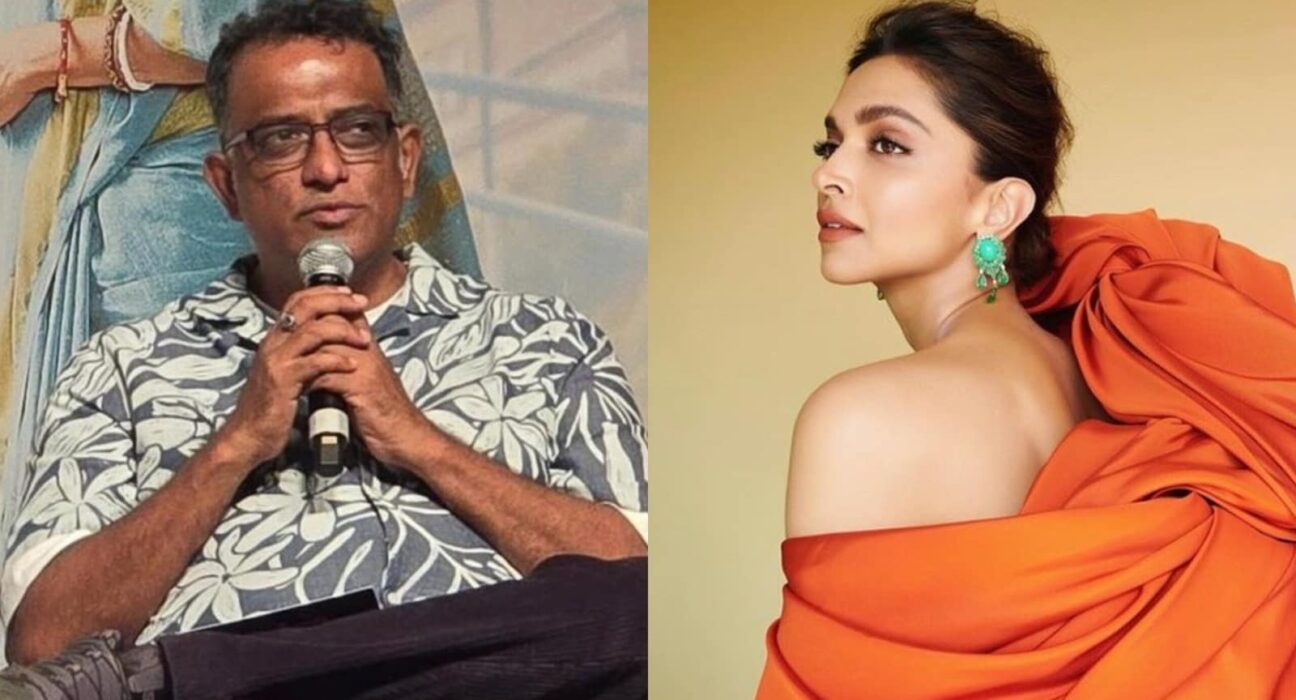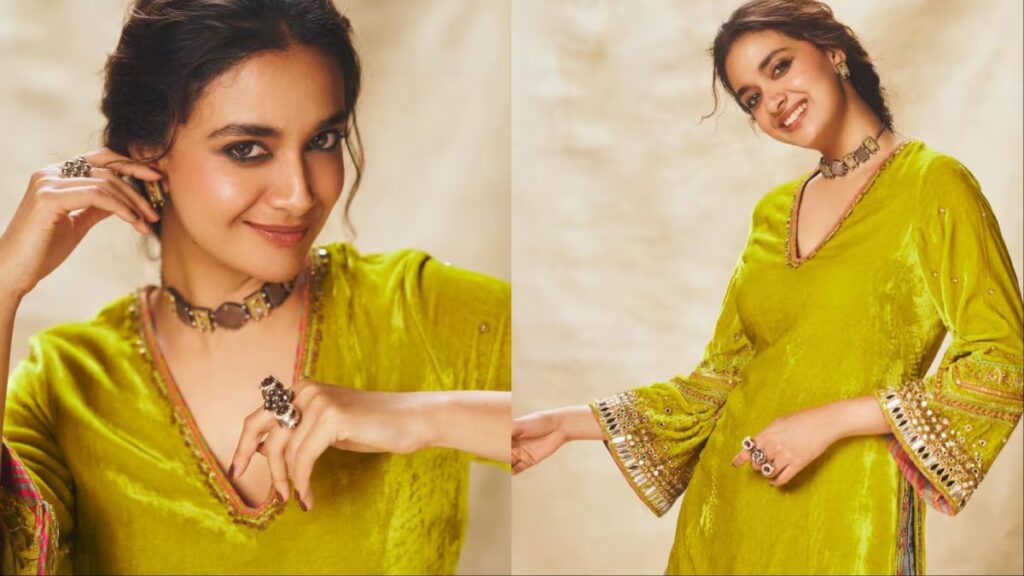Anurag Basu Backs Deepika Padukone’s 8-Hour Work Shift Demand: ‘My Actors Never Complain About Stress at Work’!!

In recent weeks, the debate around work-life balance in Bollywood has gained fresh momentum, with superstar Deepika Padukone sparking an industry-wide conversation by advocating for an 8-hour workday on film sets. Her comments, which emerged shortly after her reported exit from Sandeep Reddy Vanga’s upcoming film Spirit, have resonated across the industry. One of the most significant endorsements of her stance has now come from acclaimed filmmaker Anurag Basu, who not only backed Deepika’s demand but also revealed that he has always followed similar work ethics on his sets.
Basu, best known for directing critically acclaimed films like Barfi!, Life in a… Metro and Ludo made it clear that they prioritize the mental and physical well-being of their actors. In a recent interview, he stated, “I also don’t like long-hour shifts at work. My actors never complain because I never let it come to that. I want them to be happy on set.”
The Origins of the Debate
The issue gained mainstream attention when Deepika Padukone reportedly exited Spirit, citing scheduling and work-hour concerns. A strong proponent of structured working hours, the actress had earlier emphasized the importance of striking a balance between career and personal life, especially as she prepares to enter motherhood. Deepika, one of the few actors to speak openly about burnout and mental health, has maintained that a more humane schedule is essential not just for actors but for the entire crew working behind the scenes.
Speaking in an earlier interview, she remarked, “There’s a line I draw. I am clear about how much I can give to my work in a day. I don’t intend to burn out.” Her comments reignited a long-standing conversation about the often-excessive working hours in the Indian film industry, where 12 to 15-hour shoots are still considered standard.

Anurag Basu’s Stand
Anurag Basu’s support for Deepika comes as a refreshing counterpoint in an industry often driven by tight schedules, back-to-back commitments, and a culture that sometimes glorifies overwork. Basu emphasized that long working hours are not necessarily synonymous with quality or productivity. Instead, he believes in creating a work environment that is efficient, respectful, and artist-friendly.
“There’s no point stretching a shoot endlessly,” Basu noted. “It drains the energy out of everyone involved, not just the actors. Creativity flourishes when people are well-rested and mentally present.”
The director also revealed that he’s maintained an 8-10 hour shift structure for years and has rarely faced any issues regarding delays or unfinished work. “If you plan your shoot well, everything can be managed within 8 hours. It’s all about being organized and respecting everyone’s time,” he added.
Industry Reactions
Basu is not alone in his support. Several notable industry voices have come forward to agree with Deepika’s perspective. Actress Sonakshi Sinha, for instance, pointed out that many male actors already work within an 8-hour schedule. “People are making this out to be something new, but it’s already happening,” she said. “You just need to be assertive about your time and your limits.”
Director Kabir Khan also lent his voice to the discussion, calling the demand for an 8-hour shift “completely reasonable.” He noted that many seasoned actors, including Aamir Khan and Akshay Kumar, have operated within structured work hours for years. “In fact, it often makes sets more productive. People are more focused when they know their day won’t stretch endlessly,” Khan explained.
Even Maharaj director Siddharth P. Malhotra weighed in, recalling how actresses like Rani Mukerji and Kajol adhered to 8-hour shifts as early as 2010. “It’s not about being demanding. It’s about being efficient and mindful,” he said.
A Cultural Shift in Bollywood?
For decades, Bollywood has been infamous for its grueling schedules. Shoots often extend well into the night, and actors are frequently expected to juggle promotional events, dubbing sessions, and multiple projects simultaneously. The result? Increased stress levels, physical exhaustion, and in many cases, burnout. Deepika herself has spoken about battling depression and anxiety, much of which she attributed to relentless work pressure and lack of downtime.
The growing support for her 8-hour shift demand suggests a possible shift in industry norms. Actors today are more vocal about their needs, boundaries, and well-being. Directors and producers are increasingly recognizing the importance of sustainable work environments—not just to accommodate personal lives but also to improve performance and creativity.
Moreover, this push for balance is not just about actors. Crew members—often the unsung heroes of any production—stand to benefit the most. Lighting technicians, spot boys, costume designers, and assistant directors typically put in longer hours than the leads. Instituting fixed shifts would provide them with healthier, more equitable working conditions.
Challenges to Implementation
While the conversation is gaining traction, implementing an 8-hour workday across the industry will not be without challenges. Budget constraints, tight release schedules, and logistical limitations often force filmmakers to extend shoot durations. There’s also a longstanding belief—though increasingly contested—that more time on set equates to better output.
However, as directors like Basu have shown, with thoughtful planning and clear communication, a high-quality product can be delivered within limited hours. The key lies in rewriting old habits and aligning everyone involved—from financiers to line producers—with a more mindful approach to filmmaking.

Looking Ahead
The entertainment industry is in the midst of a transformation. Conversations about mental health, gender equality, parental leave, and work-life balance are becoming more mainstream. Deepika Padukone’s 8-hour workday stance is emblematic of this change. It’s not just a personal preference but a reflection of broader societal shifts where professionalism and compassion can—and should—coexist.
Anurag Basu’s support, coming from a seasoned and respected filmmaker, adds weight to the movement. His statement that his actors “never complain about stress” isn’t just about short shifts—it’s a testament to a leadership style that values empathy, respect, and long-term sustainability.
As more filmmakers adopt similar practices, there’s hope that Bollywood will gradually move away from its ‘work till you drop’ mentality and embrace a healthier, more balanced creative process.
Conclusion
The push for an 8-hour workday in Bollywood marks a critical inflection point in the industry’s evolution. While it may take time to standardize across the board, the growing support from leading voices like Deepika Padukone and Anurag Basu is a promising start. It suggests that the future of Indian cinema could be one where artistry thrives without compromising health, happiness, or humanity.











